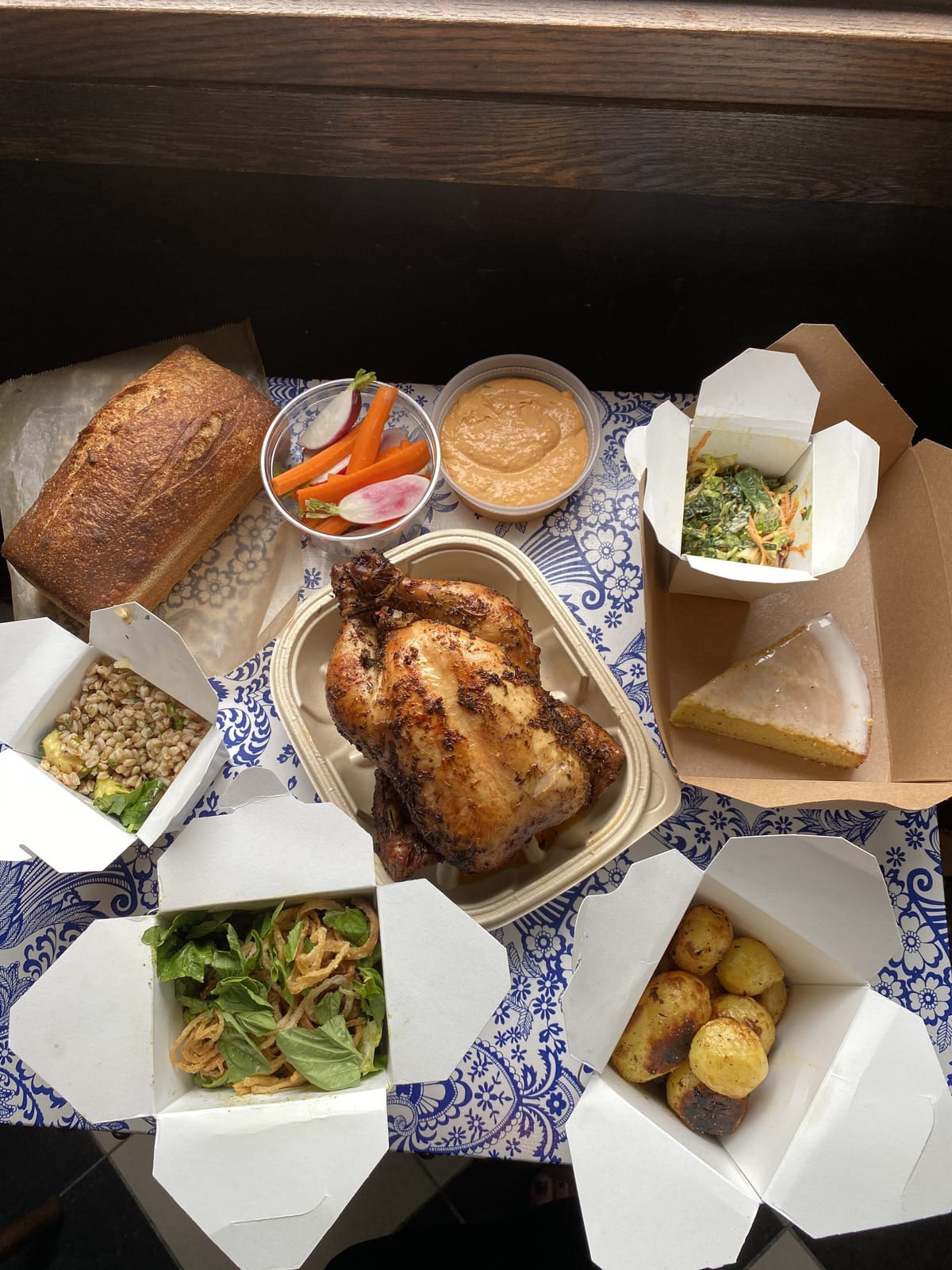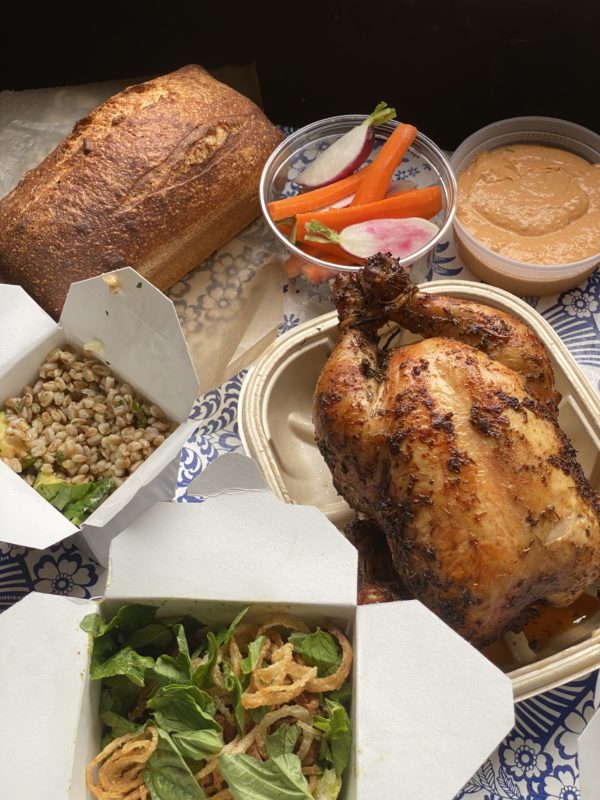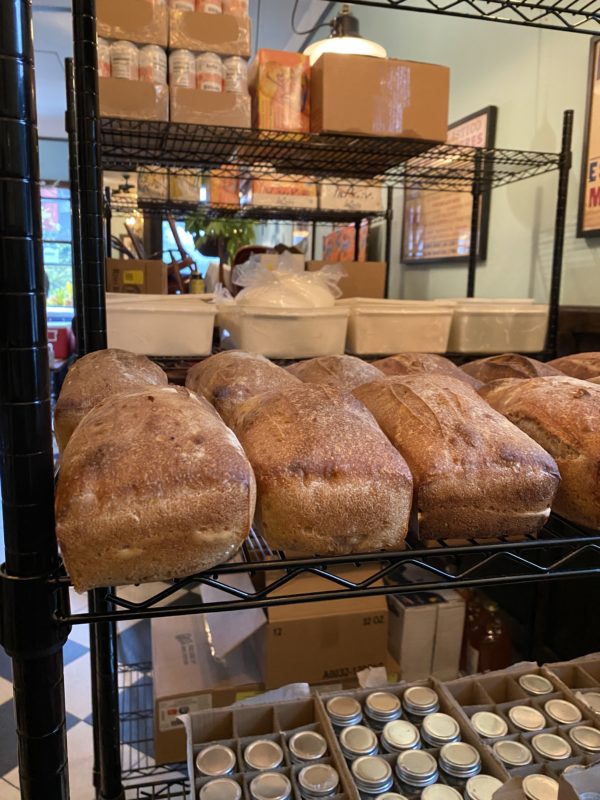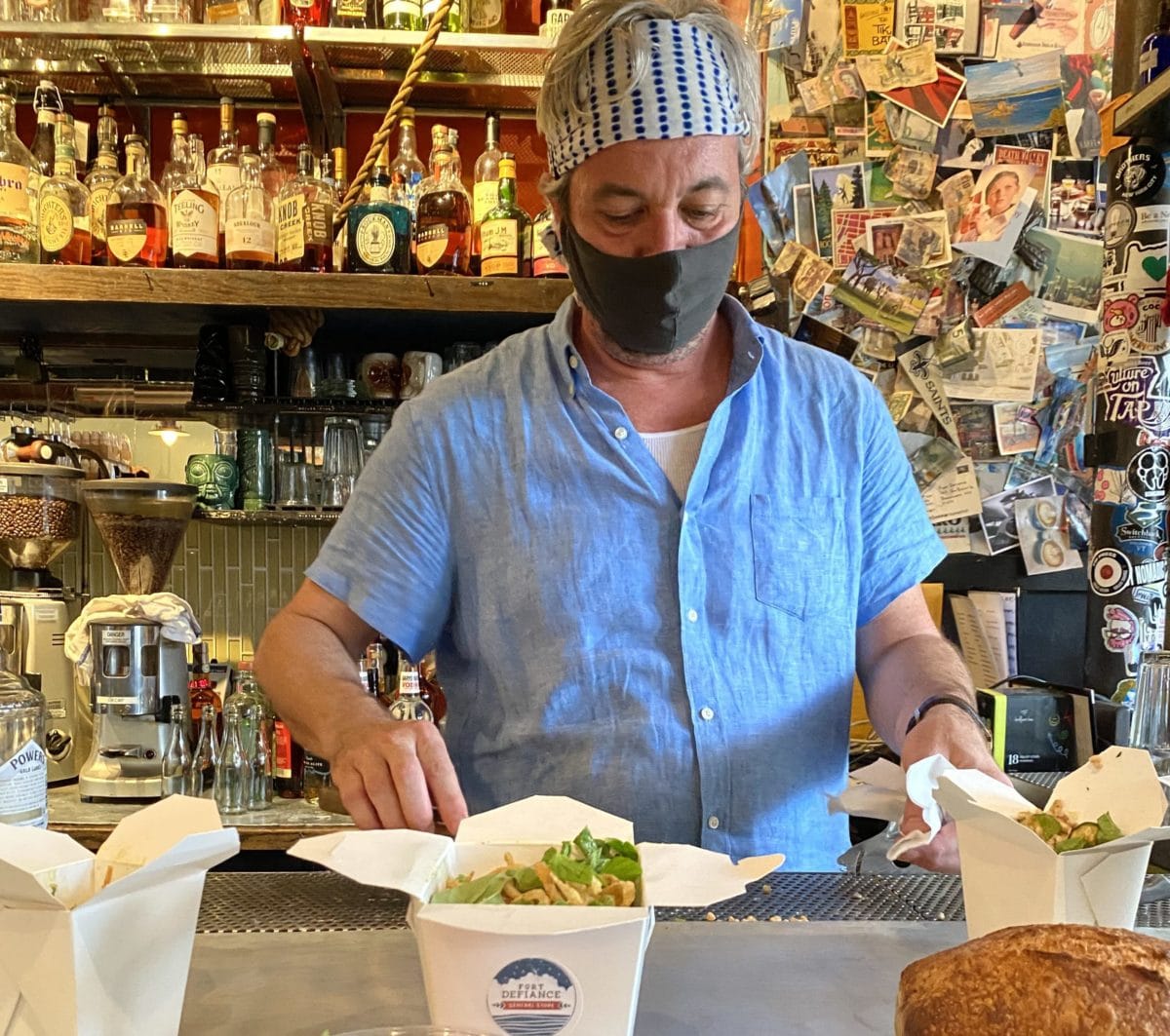Brooklyn Restaurants Turned Into General Stores To Stay Open, Some For Good

When restaurants were ordered to close in March, many had to find new and creative ways to stay afloat. Bars began bottling their signature cocktails, and many restaurants decided to start selling their extra stock. For several of these, a general store has proved an effective way to maintain the business, while rehiring some or all of their staff and making sure that their suppliers are taken care of as well.
For Felipe Donnelly, the chef and co-owner of Colonia Verde in Fort Greene, offering a general store was a way to maintain and even grow relationships with vendors. When his mushroom vendor, whom he’s worked with for over seven years, had extra stock Donnelly told him to give him what he had and he would try to move it on the restaurant’s end. This relationship inspired a similar one with other vendors, including ones that Colonia Verde had never worked with in the past.
“It was 100% [mutually beneficial]. At no point was I trying to take advantage of the situation in which their supply was higher than their demand. It was more in essence ‘what can Ido to make sure you’re taken care of so that we can continue the relationship that we had before,” Donnelly said. The general store allowed him to keep on as many staff members as wanted to work, and was met very positively by the neighborhood.
“We started essentially the second week into the quarantine, so we’ve been at it since March, which really helped get things kickstarted. The reception was immediate and it was really great. We just started with prepared food, and essentially the idea was to make sure that we didn’t have any food waste from the quarantine,” Donnelly said. Now that Colonia Verde has reopened for outdoor dining, demand for the market has slowed some, but is still present. The restaurant plans to continue offering this service even after things begin to reopen, but does rely on laws being in their favor.
“The effect of being able to sell liquor through that store has been huge. It’s a part of something that we hadn’t seen in New York which became very beneficial for our bottom line, and we hope we can continue,” Donnelly said.
St. John Frizell, the owner of Fort Defiance in Red Hook, has used the pandemic to completely flip his business. Once a neighborhood bar, food, and oyster place, Fort Defiance has now permanently made the switch to Fort Defiance General Store, and will never reopen as a restaurant.

“A lot of people are saddened by the news. We’ve been open for 11 years, so a lot of people have strong memories of Fort Defiance in its previous iteration, and they’re sad that they’re not going to be able to come in and eat anymore. But at the same time I think people are excited for what’s coming next. Overall people are very understanding. I’m trying to be pretty clear in my communication with people that I just didn’t see reopening as an option. It was impossible for us. If it’s the General Store or nothing, I think people are happy to take the General Store,” Frizell said. The bar had never done take-out or delivery in the past, and found that making the switch would require an immense amount of effort and marketing for something that may not even pay off in the end.
While the revenue is not as high as it once was for the bar, Frizell is extremely optimistic given that the business just began and has not been able to allow people inside yet.

“The story is not in the numbers right now, the story is in the enthusiasm of the people in the neighborhood who are shopping at the store. People are really happy about not having to go to the supermarket, they’re really happy about the quality of the stuff that we’re selling them which is better than the quality of the stuff they could get at the supermarket. And, they like us. They like shopping local and keeping the money in the neighborhood,” he added.
Frizell, who stayed open through Hurricane Sandy, says that he can’t wait to get to work every day now.
“I can’t explain to you how energizing this is. It’s so exciting to learn something new and to try something new. To me it seems like a very related business, we’re still serving prepared foods, so there’s still plenty of cooking going on, and learning the rest of it has been an absolute thrill,” he said.
For Bed-Stuy favorites and sister restaurants Harts and The Fly, offering a market allowed them to continue to serve their community in a meaningful way. The businesses, which also share a sister in Cervo’s, started offering both prepared and pantry items fairly early on.
Partner Nialls Fallon says that business has been good.
“I would say that we’ve had a positive response, as best as one can in the middle of a pandemic. Our goal is just to continue trying to serve our community and be able to provide food and beverage in a way we did before. Creating a market was sort of the best way that we thought we could do that,” Fallon said.
For now, The Fly has reopened for take-out and is no longer offering a store, but Hart’s is still going strong. The offerings include things like olive oil and flour, as well as house-made items like ricotta cheese.
“It’s really hard to know what the future holds and I don’t know that restaurants will be opening anytime soon. I definitely think we’ll continue doing the market at Hart’s for a while,” Fallon said.
Frizell thinks that the pandemic could trigger a similar shift to offering market items for many restaurants, especially given that the industry was “in crisis” even before the pandemic, he said.

“First of all, it just makes sense. You already have these relationships with these vendors. Even if you’re just serving food to go you have all this stock and could sell that to your customers,” he said. “I think that we’ll see it a lot. Everyone is going to have to adapt, everyone is adapting. As we have seen this week, this pandemic isn’t going anywhere, it’s getting much worse every day.”




